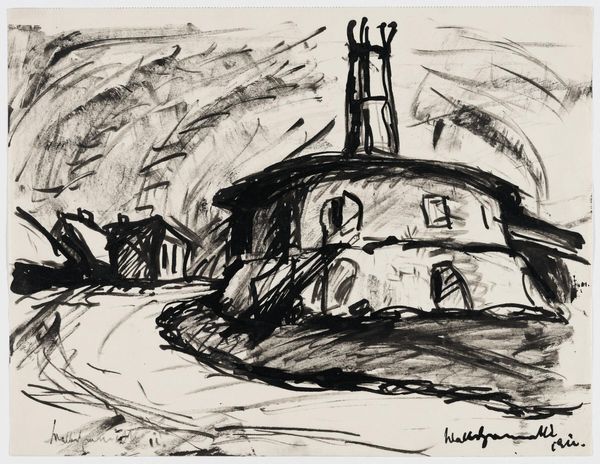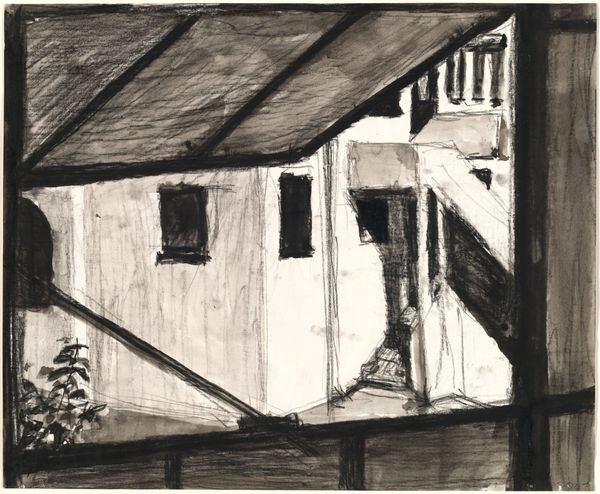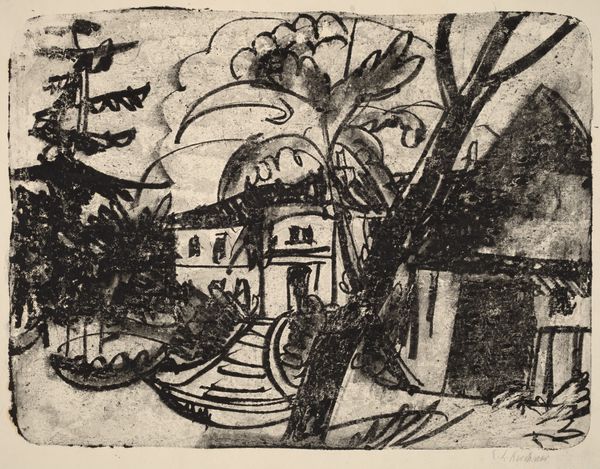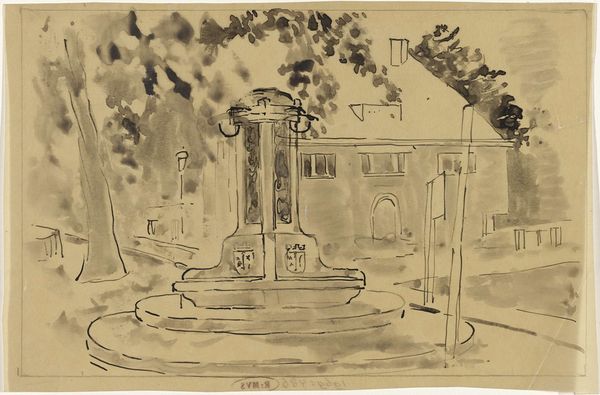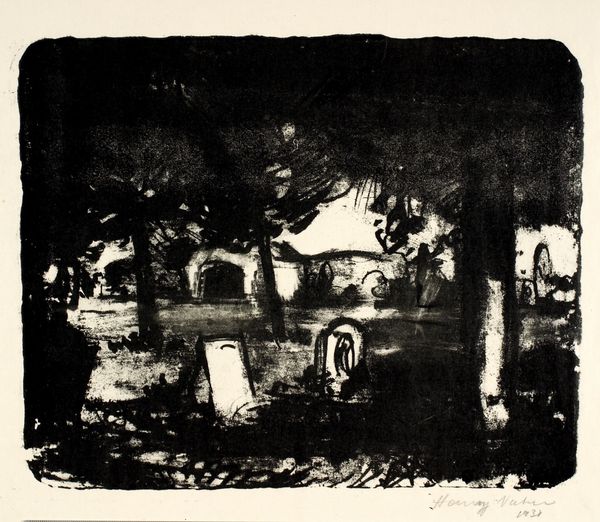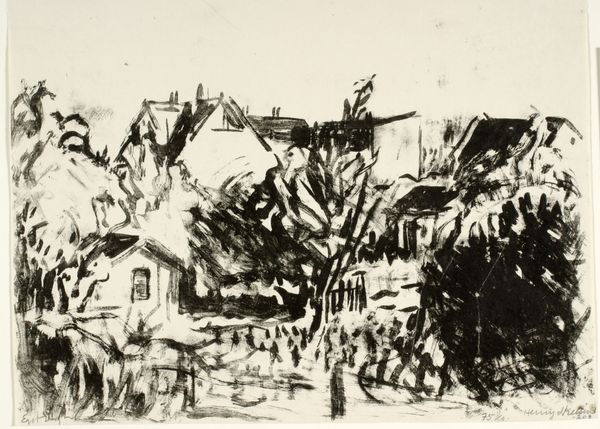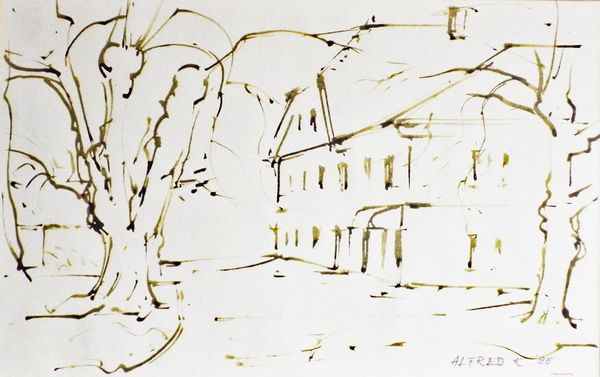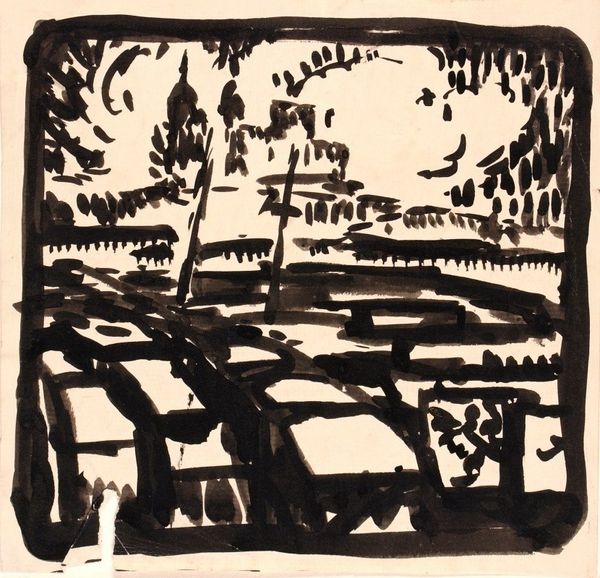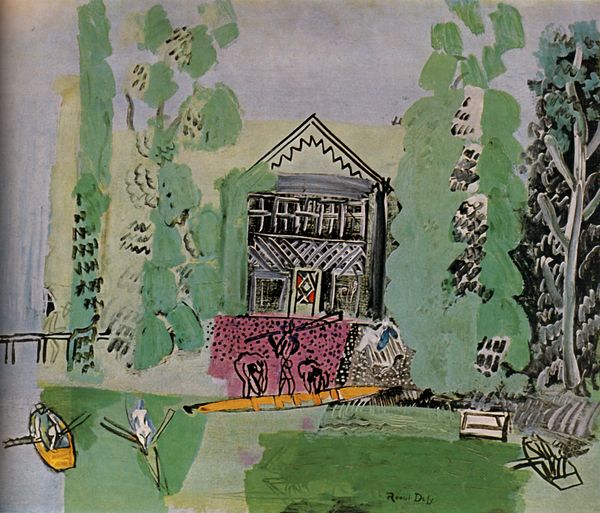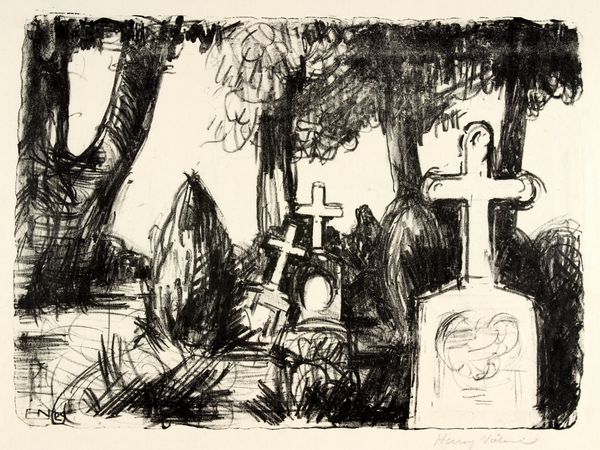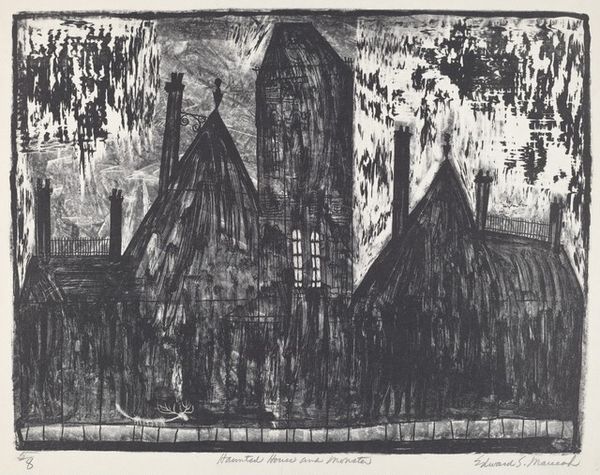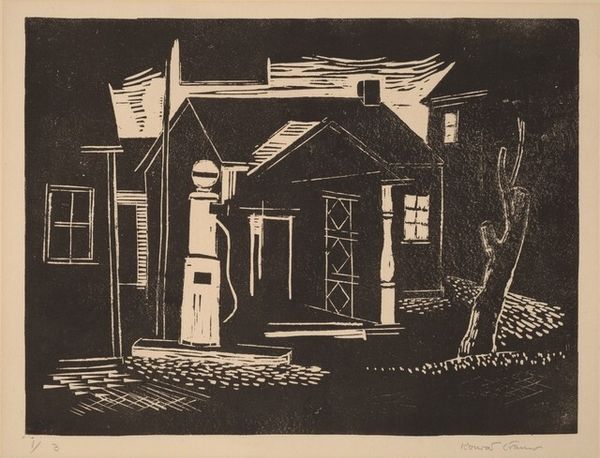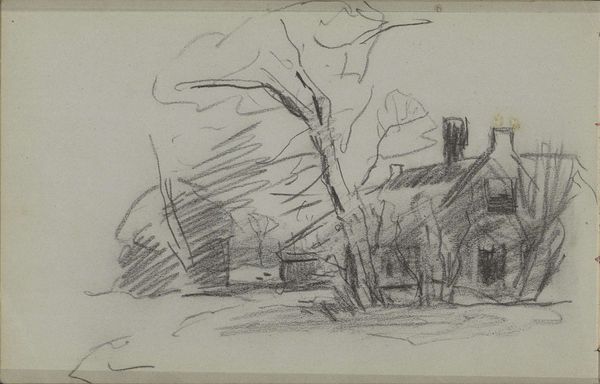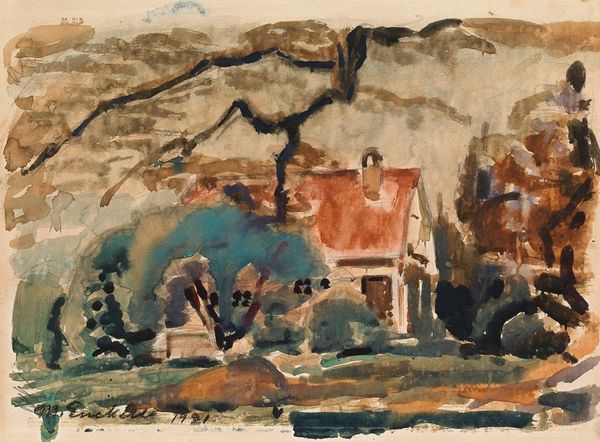
drawing, paper, ink
#
drawing
#
paper
#
ink
#
abstraction
#
cityscape
#
modernism
Dimensions: 21 x 24 cm
Copyright: Creative Commons NonCommercial
Editor: This is "The Edison Cinema," created by Alfred Freddy Krupa in 1992, using ink on paper. I’m struck by the starkness of the ink; it creates this imposing almost desolate cityscape. What's your take on this piece? Curator: I focus on how this work reflects the social conditions of its creation through its materiality. Ink, traditionally used for documentation and reproduction, is here deployed to capture a scene—a cinema. What does the choice of such a commonplace material say about Krupa's view of artistic labor and the value placed on the depicted subject? Editor: That's interesting. I hadn’t considered ink beyond its simplicity and how that contributes to the bleak mood. How does the context of the early 90's factor in? Curator: Consider the shift in artistic production following the collapse of certain socio-political structures in Eastern Europe during this period. How might the relative accessibility of ink and paper—compared to more ‘precious’ materials—influence artistic choices? Does it democratize art-making, and does this then reflect back onto the depiction of an 'Edison Cinema,' potentially linking to mass media and consumerism? Editor: So you’re saying the choice of material challenges this romantic view of art? By using just ink and paper, is he leveling high art with the everyday experience of going to the movies? Curator: Exactly. And we have to think about how Krupa's process might challenge the existing class-based consumption and traditional notions of artistic production at that time. What’s intriguing to you about the medium considering he chose cityscape abstraction? Editor: I see how the materiality pushes back on traditional boundaries and gives me more insight into that period and his method. Thanks for showing me the connection! Curator: The connection between material and subject helps to re-evaluate the artist's choices of representation within wider contexts of culture and economy. It's been insightful to discuss with you, too.
Comments
No comments
Be the first to comment and join the conversation on the ultimate creative platform.
